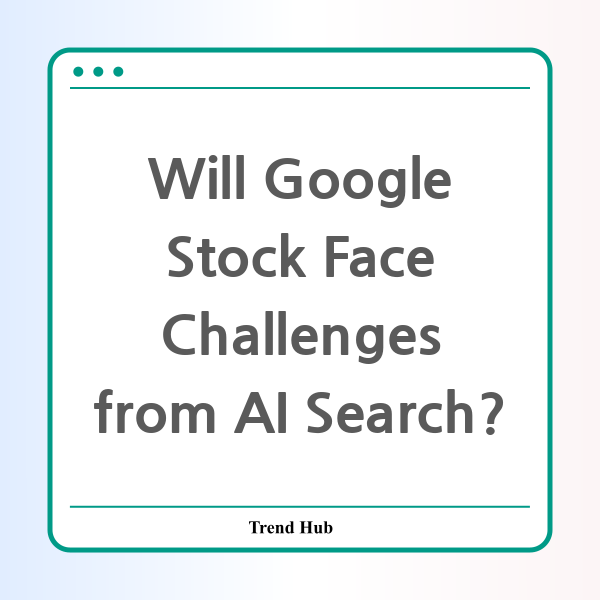* This website participates in the Amazon Affiliate Program and earns from qualifying purchases.

As we step into a new era of information retrieval, a pressing question looms: Will Google Stock face unforeseen challenges from the rising tide of AI-driven search tools like ChatGPT? Back in the day, using Google felt as straightforward as flipping a switch in a dark room; you typed in a query, and voilà, the web responded. However, the explosion of alternatives has begun to cast shadows on Google’s once-dominant presence.
Google is a titan in the digital world, processing around 14 billion searches a day and commanding approximately 93% of the global search market. Its business model relies on delivering a list of results, with sponsored ads positioned at the top. This model has been a goldmine for Google, generating substantial revenue over the years.
But recent developments hint at a seismic shift in how users search for and access information. Enter ChatGPT, an AI-powered tool that has grown to handle about 37.5 million queries a day. While this number pales in comparison to Google’s traffic, it’s experiencing explosive growth. The user base expanded from 300 million to 400 million weekly users in just a few months, and aspirations to reach a billion users by year-end are hovering on the horizon.
This Isn’t Just a Gimmick—It’s a Real Shift
So, what’s driving this transformation? Unlike traditional searches that often leave users sifting through a cluttered array of links, ChatGPT offers direct answers. For example, when questioned about the viability of Alphabet stock amidst the rise of chatbot searches, users receive comprehensive, sourced responses instead of a mere list of links. This method of information retrieval is becoming increasingly appealing, especially for younger audiences who are more adept with chat-based tools.
As users continue to seek quick and relevant answers, Google’s traditional model, which heavily relies on clicks—specifically on sponsored ads—faces an imminent threat. A notable shift in behavior could lead to significant consequences for Google’s ad revenue if users opt for concise AI responses instead of navigating to various websites.
To gauge the impact, it’s essential to consider the statistics: ChatGPT currently captures between 0.25% and 2.1% of the global search-like traffic, marking a staggering 740% increase from previous years. Even a minor decline in search traffic—say 5–10%—could translate to billions in lost revenue for Google. For stakeholders monitoring Alphabet stock, these shifts do not equate to an immediate crisis, but they signal a pressing need for adaptation.
Google is Not Standing Still
In response to these emerging challenges, Google is actively innovating. The launch of its own AI chatbot, Gemini, and the introduction of AI Overviews that provide succinct answers directly within search results aim to retain users within the Google ecosystem. Nevertheless, this evolution presents a double-edged sword; fewer interactions may lead to diminished ad visibility and revenue, pushing Google to navigate a delicate balance between innovation and profitability.
Investing in Alphabet Stock: What You Need to Know
As it stands, Alphabet stock maintains a Strong Buy rating from Wall Street, indicating confidence in the company’s long-term potential. Analysts suggest a 22.62% upside as Google continues to adapt and evolve amidst changing digital landscapes. However, the core question remains: Can Google keep pace with the rapidly changing preferences of users and stave off the encroachment of AI-driven competitors?
In conclusion, while Google remains a dominant force, changes in consumer behavior and technology represent a critical juncture for the company and its stock. Investors and stakeholders alike should keep a close watch on how Google continues to innovate and respond to the AI revolution in search.
* This website participates in the Amazon Affiliate Program and earns from qualifying purchases.